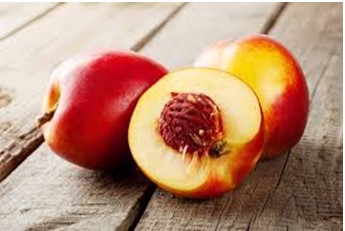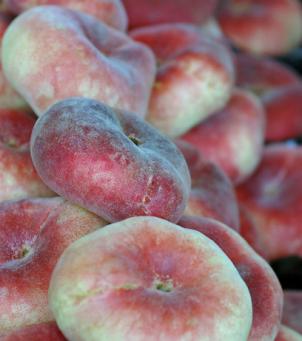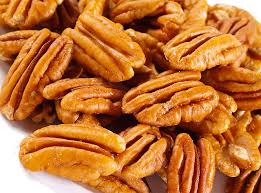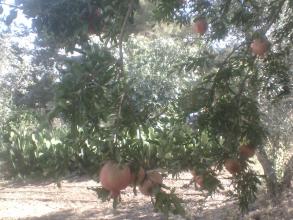Sometimes I feel like surprise hosting a short trivia competition between the people trapped in my living roomwho cannot escape (the kids, that is).
I will ask this: Is it true that people who eat too much carrots can turn orange? (Well, yes – anyone who eats lots, like real huge quantities of carrots, will become slightly orangey, at the point when the body is suggesting that it does not needs any more beta carotene, thank you very much. Is the Armenian cucumber really just a hairy cucumber?
(No, it is not –it is more similar to a ripe gourd). But most of all, I truly have a chance of getting surprised cries (who am I kidding? All they want is for me to stop blocking their view of Netflix on TV) if I ask them: Is it true that a Nectarine is a peach-plum hybrid?meaning a cross between a peach and a plum?
Not true! That is a cute urban tale that looks and sounds (and smells and tastes) reasonable, but it's not true. There is very small genetic difference between the peach and the nectarine (the gene responsible for the peach's fuzz) and they both are not related to the plum. The nectarine did not inherit it’s smooth skin from the plum.
Nectarines, and their peach cousins came to us from China. Can you imagine a Chinese lady dressed in fancy traditional attire strolling among the orchard trees, the scent of the blossoms standing in the air, the sunshade protecting her face from the sun (it is improper for ladies of this stature to sunbathe, as a lady must maintain her pearly – white skin).
She extends her arm towards one of the trees and plucks a ripe fruit, red with an orange spot (I am well aware of the fact that if there are fruits, there should no longer be the sweet smell of blossom, but I needed both for the scene here). She brings the fruit closer to her lips, and bites it with her small Chinese teeth and says "Mmm … the taste of the gods’ nectar …" because the Nectarine, at least for the Chinese, was actually considered the gods’nectar. A slightly sweet fruit with a slight sourness, juicy but not liquidy.
I wonder if they were also aware of it’s nutritional and health benefits – I suppose they were, even if they did not have the nutritional values label on them stating the number of calories, proteins, fats (!) Sodium and calcium are present in every100 grams of produce. The Chinese, as well as the traditional Chinese medicine, attribute their health to a balanced diet. They probably knew very well what the benefits of eating nectarines are.
The nectarine, just like the peach and the plum, came to us from China (but that still does not justify the urban legend regarding their hybridization!). It traveled a bit through Iran, Persia of those days (the origin of the name a-far-sek), landed for a short period in Greece, and then catch a leisurely ride with Alexander the Great toward the Mediterranean basin.
Even in Israel, in previous times when they were mentioned in the Talmud as the “Freskin and Shkedin”, they knew how to wiselymatch the foods to our bodies, so that “your foods shall be your medicine” (rather than “may your foods be the entry card for a long relationship with your doctors”). Like its relatives, the nectarine belongs to the deciduous species and the dustyspecies – not those covered in road dust, but those who enjoyvisiting bees, bringing them some of the neighbors' pollen and take some of their pollen away, for the next nectarine flower.
What good things are packed deep inside a handful of nectarines? I’m glad you asked. Isn't the nectarine delicious in a kale salad bowl? That's because they both have quite a bit of Vitamin K causing them to blend in well with each other (here, that's how urban legends begin. I actually mean that both have a lot of Vitamin K, the remaining romantic descriptions are mine, of course).
They are accompanied by Vitamin A, Vitamin E and Vitamin C – which, although we recommend lots of vitamin C during the winter, it is equally important during the summer, especially when Corona virus is raging outdoors. Beyond those, it also contains magnesium, phosphorus, potassium and zinc and lots of B-group vitamins. A good part of them is stored in the peel, which is of course preferable in its organic version.
Hoping to hear good news and welcome the soon-to-come summer fruits, all ripe and beautiful…
Yours,
Maggie's Garden Team
Forecast:
In the ORGANIC vegetable baskets we expect (draft only):
Cucumber
Tomato
Lettuce
Potato
Eggplant
Cabbage
Celery
Swiss chard
Parsley
The Large organic vegetable baskets also include:
Kale
Coriander
Fennel
In the ORGANIC fruit baskets:
Orange
Bannana
Half watermelon
The large ORGANIC fruit baskets also include:
Apple
Melon
The ORGANIC Green Basket:
Dill
A kind of lettuce
Celery
Radish
Swiss Chard
Kale
Green onion












